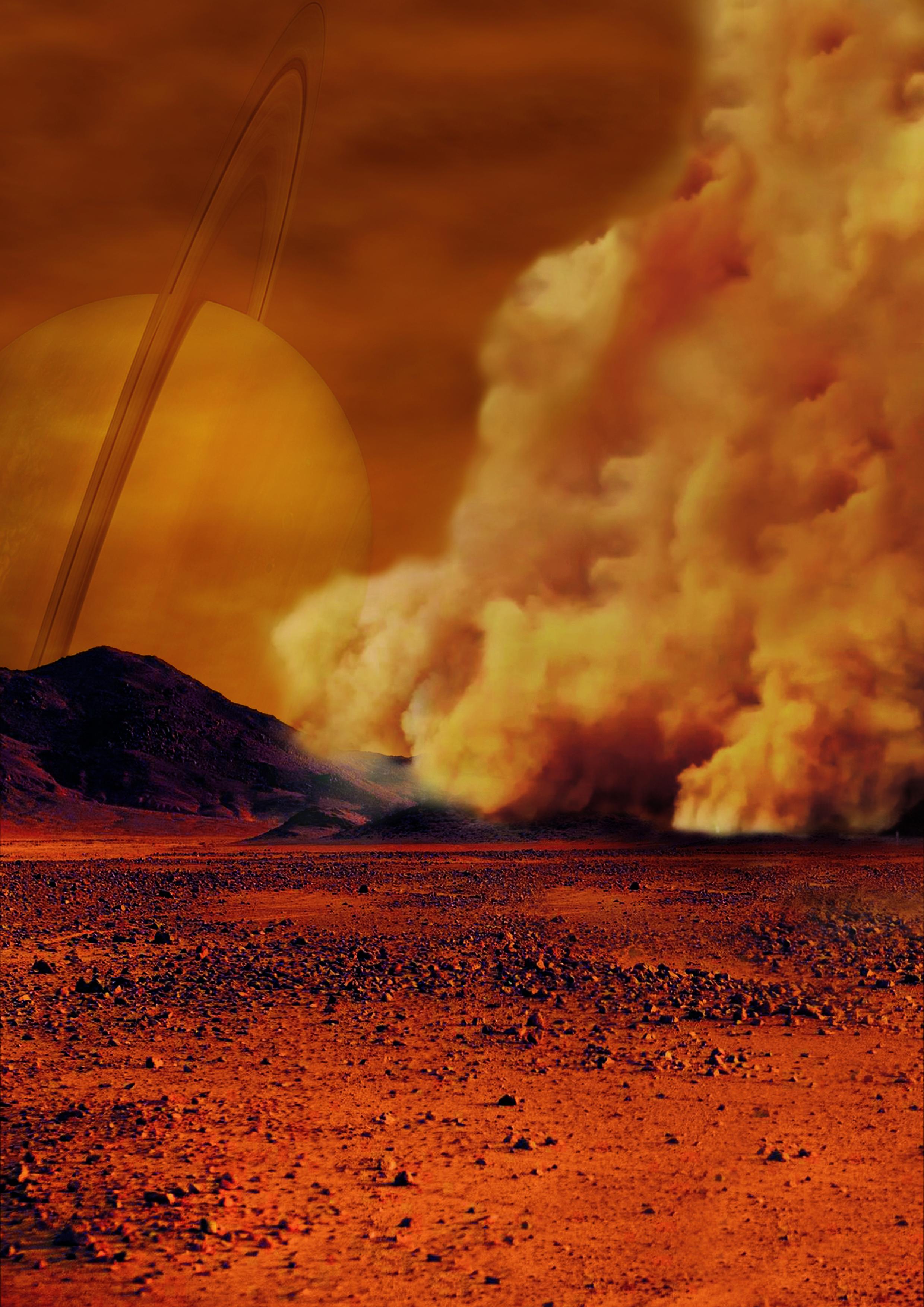
|
Dust Storms Raised by Strong Winds on Titan (Artist’s Concept)
- Click the image above for a larger view
- Full-Res JPEG (2480 x 3508) (790.4 kB)
- Full-Res TIFF (2480 x 3508) (22.7 MB)
Caption:
Artist's concept of a dust storm on Titan. Researchers believe that huge amounts of dust can be raised on Titan, Saturn's largest moon, by strong wind gusts that arise in powerful methane storms. Such methane storms, previously observed in images from the international Cassini spacecraft, can form above dune fields that cover the equatorial regions of this moon especially around the equinox, the time of the year when the Sun crosses the equator.
Background Info:
The Cassini spacecraft ended its mission on Sept. 15, 2017.
The Cassini mission is a cooperative project of NASA, ESA (the European Space Agency) and the Italian Space Agency. The Jet Propulsion Laboratory, a division of the California Institute of Technology in Pasadena, manages the mission for NASA's Science Mission Directorate, Washington. The Cassini orbiter and its two onboard cameras were designed, developed and assembled at JPL. The imaging operations center is based at the Space Science Institute in Boulder, Colorado.
For more information about the Cassini-Huygens mission visit https://saturn.jpl.nasa.gov and https://www.nasa.gov/cassini . The Cassini imaging team homepage is at http://ciclops.org .
Cataloging Keywords:
| Name | Value | Additional Values |
|---|---|---|
| Target | Titan | |
| System | Saturn | |
| Target Type | Satellite | |
| Mission | Cassini-Huygens | |
| Instrument Host | ||
| Host Type | ||
| Instrument | ||
| Detector | ||
| Extra Keywords | Artwork, Atmosphere, Color, Dune, Dust, Methane, Storm | |
| Acquisition Date | ||
| Release Date | 2018-09-24 | |
| Date in Caption | ||
| Image Credit | NASA/ESA/IPGP/Labex UnivEarthS/University Paris Diderot | |
| Source | photojournal.jpl.nasa.gov/catalog/PIA22482 | |
| Identifier | PIA22482 | |
